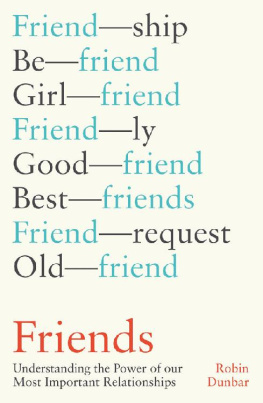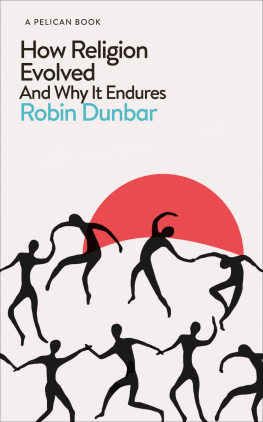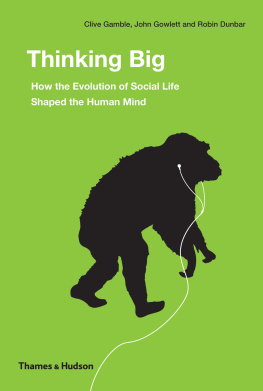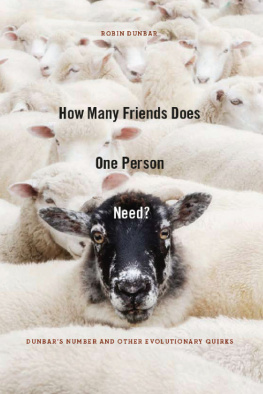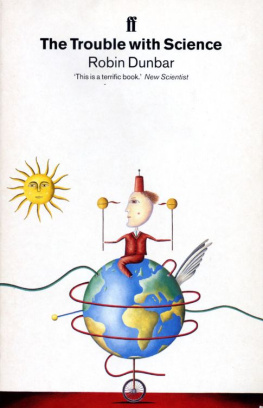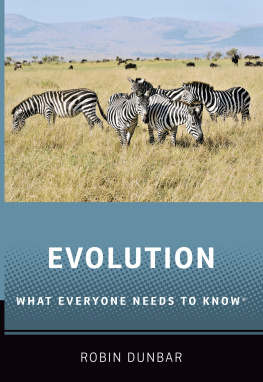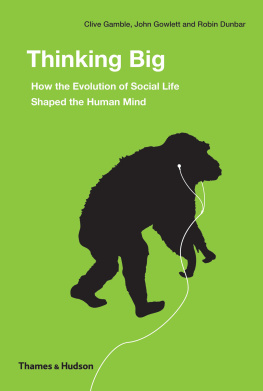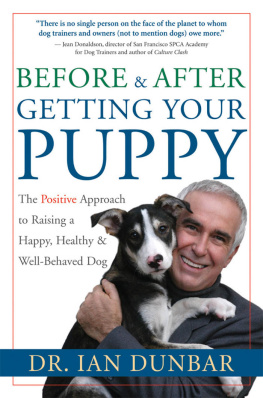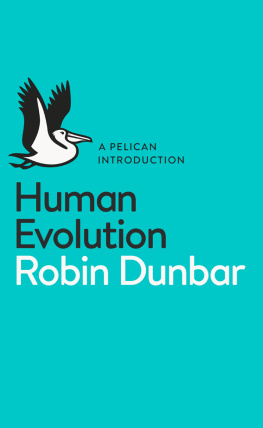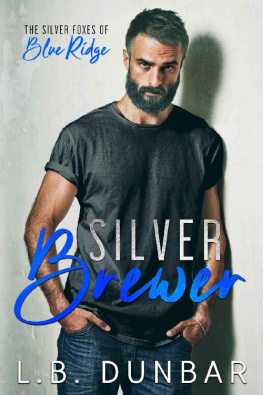Robin Dunbar - Friends
Here you can read online Robin Dunbar - Friends full text of the book (entire story) in english for free. Download pdf and epub, get meaning, cover and reviews about this ebook. year: 2021, publisher: Little, Brown Book Group, genre: Politics. Description of the work, (preface) as well as reviews are available. Best literature library LitArk.com created for fans of good reading and offers a wide selection of genres:
Romance novel
Science fiction
Adventure
Detective
Science
History
Home and family
Prose
Art
Politics
Computer
Non-fiction
Religion
Business
Children
Humor
Choose a favorite category and find really read worthwhile books. Enjoy immersion in the world of imagination, feel the emotions of the characters or learn something new for yourself, make an fascinating discovery.
- Book:Friends
- Author:
- Publisher:Little, Brown Book Group
- Genre:
- Year:2021
- Rating:5 / 5
- Favourites:Add to favourites
- Your mark:
- 100
- 1
- 2
- 3
- 4
- 5
Friends: summary, description and annotation
We offer to read an annotation, description, summary or preface (depends on what the author of the book "Friends" wrote himself). If you haven't found the necessary information about the book — write in the comments, we will try to find it.
Friends — read online for free the complete book (whole text) full work
Below is the text of the book, divided by pages. System saving the place of the last page read, allows you to conveniently read the book "Friends" online for free, without having to search again every time where you left off. Put a bookmark, and you can go to the page where you finished reading at any time.
Font size:
Interval:
Bookmark:
Also by Robin Dunbar
Grooming, Gossip and the Evolution of Language
The Trouble with Science
The Human Story
How Many Friends Does One Person Need?
The Science of Love and Betrayal
Human Evolution
Evolution: What Everyone Needs to Know
Understanding the Power of our Most Important Relationships
Robin Dunbar

LITTLE, BROWN
First published in Great Britain in 2021 by Little, Brown
Copyright Robin Dunbar, 2021
The moral right of the author has been asserted.
All rights reserved.
No part of this publication may be reproduced, stored in a retrieval system, or transmitted, in any form or by any means, without the prior permission in writing of the publisher, nor be otherwise circulated in any form of binding or cover other than that in which it is published and without a similar condition including this condition being imposed on the subsequent purchaser.
A CIP catalogue record for this book is available from the British Library.
ISBN 978-1-4087-1172-9
Little, Brown
An imprint of
Little, Brown Book Group
Carmelite House
50 Victoria Embankment
London EC4Y 0DZ
An Hachette UK Company
www.hachette.co.uk
www.littlebrown.co.uk
For
Freddie, Arthur, Edie, Eva, Rufus and Theo
M ost of the research described in this book was carried out by the many graduate students, postdoctoral researchers and research fellows, as well as many external collaborators, who have worked with me over the past three decades. They are too many to name individually here, but the story owes everything to their individual and collective efforts, their friendship, and their enthusiasm. This was very much a communal endeavour, forged in bonds of friendship and a great deal of fun. Without their contributions, this story would have been very short. To all of them, a heartfelt thanks. Much of this was made possible by research grants from the UKs EPSRC and ESRC research councils (the DTESS project), the University of Liverpool, the University of Oxford, Magdalen Colleges Calleva Research Centre, the British Academy (a Research Professorship and the Lucy to Language project), Aalto University (Finland), the EUS FP7 and Horizon 2020 programmes (the SOCIALNET, ICTe-Collective and IBSEN projects) and the European Research Council (the RELNET project), as well as individual research fellowships funded by the Royal Society and the EUs Marie Curie programme. Other contributions for specific studies came from the Holocaust Memorial Day Trust, CAMRA (the Campaign for Real Ale), the Big Lunch Project and Thomas Fudge the Dorset Bakers. Last but not least, John Archer kindly read
T he journalist Maria Lally described her experiences as a thirty-something mum moving out of the bustling London lifestyle that she had enjoyed since first starting work for a quieter life with her young family in the Surrey countryside. She very quickly realised not only that she did not know anybody in the village but that it was going to be difficult to make friends because everyone else was already embedded in longstanding friendships. I vividly remember, she wrote, listening to two women arranging to go for a coffee, and I could have cried... Thats something most of us could empathise with. We seem to spend so much of our time peering, like lonely Victorian waifs, through misty windows into cosy, warm rooms full of laughter and people happily absorbed in relationships of one kind or another.
Friendship and loneliness are two sides of the same social coin, and we lurch through life from one to the other. What has surprised medical researchers over the last decade or so is just how dramatic the effects of having friendships actually are not just for our happiness, but also for our health, wellbeing, and even how long we live. We do not cope well with isolation. Friendship, however, is a two-way process that requires both parties to be reasonably accommodating and tolerant of each other, to be willing to spare time for each other. Nowhere has this been so obvious as in the modern world. Just when we might think social life couldnt get better, suddenly we find ourselves in the midst of a plague of loneliness.
A study of nearly 4,000 men in Australia carried out for the Movember Foundation in 2014 reported that men with few friends and low social support experienced most psychological distress. The ones that were especially vulnerable were those whose friendships were based on nothing more than a common interest, such as a sports club: as participation in the activity fell away, as members married, had children or moved away, so those who remained lost friends, and these werent easily replaced. Loneliness is turning out to be the modern killer disease, rapidly replacing all the more usual candidates as the commonest cause of death. Why is this? Or, to put the question the other way around: if you dont already believe that friendship is good for you, let me see if I can persuade you.
Perhaps the most surprising finding to emerge from the medical literature over the past two decades has been the evidence that the more friends we have, the less likely we are to fall prey to diseases, and the longer we will live. Julianne Holt-Lunstad, who leads the Social Connections and Health Laboratory at Utahs Brigham Young University and specialises in the impact of social connections and loneliness on our life chances, provides us with some particularly compelling evidence. She examined 148 epidemiological studies that provided data on factors that influenced peoples risk of dying.
There are two things I like about this study. First, between them these 148 studies sampled over 300,000 patients. Thats an enormous number of subjects by any standards, and means that the findings are likely to be very robust. Second, it is very hardnosed: its outcome measure is whether or not you survived. So many studies use rating scales of the kind that ask, rather vaguely, On a scale of 15, how much do you like X? (I hold my hand up to that as much as anyone else), and these are always at the mercy of the subjectivities of how different individuals interpret the wording of a question or feel on that particular day. Does my rating of Im very happy today mean the same as yours? Does it even mean the same this week as I felt last week? Using whether you died or not as its criterion avoids this trap completely because there can be no argument: either you survive or you die. No ifs, buts, whens or howevers.
Among the factors included in the analysis were all the usual suspects beloved by your doctor: How overweight are you? How much do you smoke? How much alcohol do you drink? How much exercise do you take? How polluted is the air where you live? Have you had the flu vaccine? What rehabilitation regime are you on? Have they given you any drugs? In addition, however, they looked at a series of measures about the persons social world. These included things like: Are you married or single? How much do you participate in social activities? How many friends do you have? How involved are you with your friends or with the wider community you live in? Do you feel lonely or socially isolated? How much emotional support do you feel you get from other people?
The big surprise was that it was the social measures that most influenced your chances of surviving, and especially so after heart attacks and strokes. The best predictors were those that contrasted high versus low frequencies of social support and those that measured how well integrated you were into your social network and your local community. Scoring high on these increased your chances of surviving by as much as 50 per cent. Only giving up smoking had anything like the same effect. It will no doubt get me into trouble with the medical profession, but it is not too much of an exaggeration to say that you can eat as much as you like, drink as much alcohol as you want, slob about as much as you fancy, fail to do your exercises and live in as polluted an atmosphere as you can find, and you will barely notice the difference. But having no friends or not being involved in community activities will dramatically affect how long you live. Thats not to say that all these other things make
Next pageFont size:
Interval:
Bookmark:
Similar books «Friends»
Look at similar books to Friends. We have selected literature similar in name and meaning in the hope of providing readers with more options to find new, interesting, not yet read works.
Discussion, reviews of the book Friends and just readers' own opinions. Leave your comments, write what you think about the work, its meaning or the main characters. Specify what exactly you liked and what you didn't like, and why you think so.

